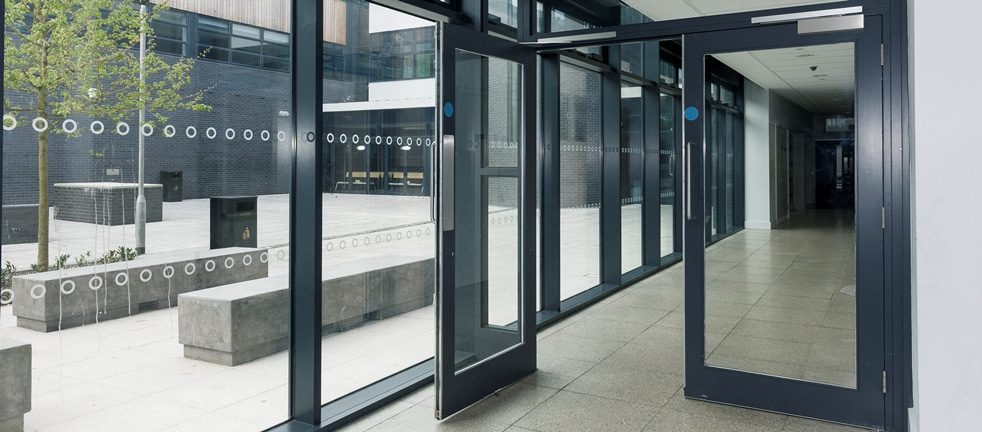- Are you currently fitting commercial doors into shops, schools, offices or other public buildings?
- Are you aware of your responsibilities and obligations under current Building Regulations and the Law?
Given the results of recent surveys it appears that many door installers may not be complying with current Building Regulations and The Equality Act.

There is a mixture of primary legislation and regulations that cover what commercial doors need to be made of and what kind of hardware they require to be legally compliant. The Aluminium Trade Supply Website will over the coming months be working with leading hardware manufacturers and systems companies to raise awareness of this important issue. This directly affects you if you install commercial doors.
With the media reporting on disabled access to shops and public buildings more than ever before it is only a matter of time before inspections of doors and building regs compliance become commonplace. And it’s highly likely that if inspections become more widespread then some form of enforcement will follow.
But the good news is that with some simple steps and greater awareness you do not need to drastically change the way you currently order or install commercial doors.
Could you be breaking the law when you install commercial doors?
Think about the last commercial door you installed. Did this have standard hardware for example a budget door closer or pad handles that were the same colour as the door leaves? If so, it is quite likely this was a non compliant product. If you are already making your customers aware about other legal requirements in doors such as toughened glass, or in windows such as trickle vents or egress hinges, then you should also be considering whether your commercial doors also comply.
Door installers have a responsibility to comply with current Building Regulations.
Don’t just take our word for it. Here are some examples of recent news stories and where legal action has been taken against service providers for non compliance.
- The BBC has just reported on the “shocking” access for disabled people in the high street. A fifth of shops was found to have no wheelchair access. Were the doors fitted a contributing factor?
- The Royal Bank of Scotland was fined £6500 for compensation and ordered to carry out £200000 of building works when it was ruled in court that a disabled customer could not access their facilities.
- In November 2014, a BBC London investigation also found many high street chains also failing to comply with the law.
The accessibility to public buildings by people with disabilities will gain greater awareness.

There are also many cases where hardware companies have been called out to advise businesses that have had complaints made against them about doors not complying with Building Regulations. We know of cases that have gone to court and other cases settled out of court but at substantial cost to the parties concerned.
Whilst the responsibility ultimately falls on the service provider, you as the door installer have an obligation to comply with the Building Regulations and current standards that form the Equality Act. If the service provider receives a complaint about their premises is it likely that you as the door installer will be asked why the doors do not comply; and the next question will be “what are you going to do to rectify it”
Together we want to ensure that you can provide the right doors with the right hardware.
We can advise you on providing the right commercial doors that can help meet the Equality Act that is the focus of recent reporting. It is not complicated and could avoid potential pitfalls with the commercial doors you currently install. Several well known aluminium systems companies have already modified their commercial doors and the hardware supplied with them as more people become aware of the importance of accessibility in public buildings.
You can read the related information on this site for guidance or you are welcome to contact us for more information.











